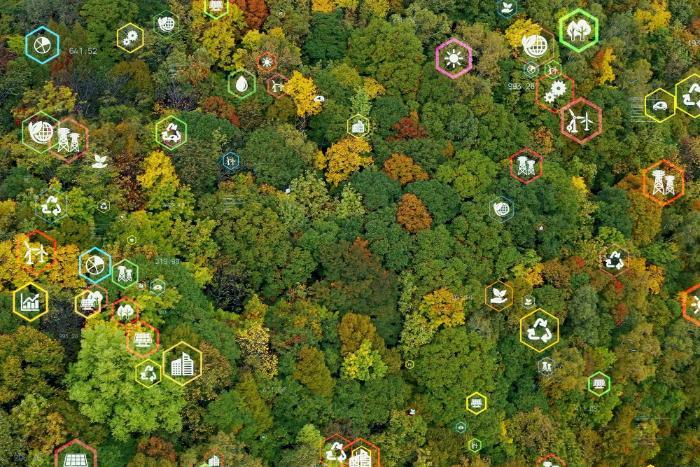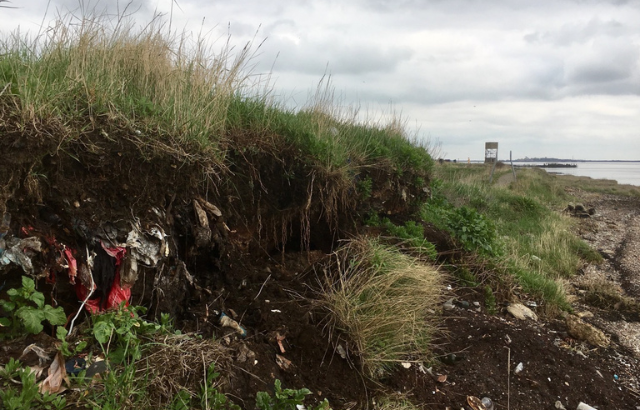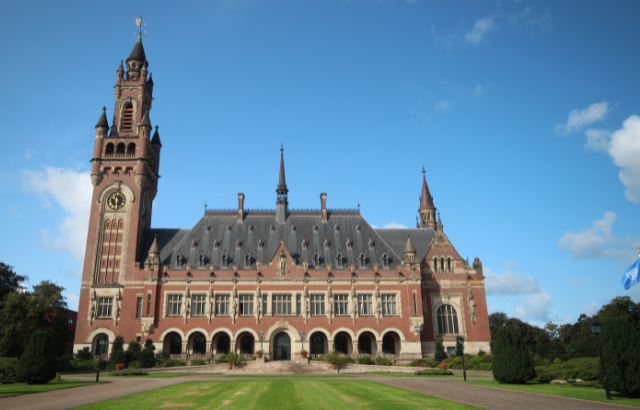Queen Mary tackles sustainability and environmental challenges
Climate scientists and activists, Heads of State, minsters and CEOs have gathered at the 27th Conference of the Parties of the UNFCC (COP27) in Sharm-El-Sheikh, Egypt, as the window for climate change action narrows further.

Professor Wen Wang, Queen Mary's Vice-Principal and Executive Dean for Science and Engineering, said: “The widespread adoption of Net Zero commitments has been an important step in addressing environmental challenges, and rightly mean we allow ourselves to be held accountable for necessary progress. It is no secret that we have a very long way to go to.
We have a common home and we only have one earth. There will always be challenges we face, whether financial like rising inflation, or health-related like the Covid-19 pandemic. But combatting these does not mean we should press pause on our efforts to address environmental challenges. Great scientific progress has been made at Queen Mary as well as around the world and we must work together to make changes happen. We owe it to future generations to make the right choices based on scientific evidence now.”
Queen Mary academics and researchers are building a clear picture of environmental degradation and the effects of climate change. Through vital research and creative and strategic initiatives, here’s how Queen Mary is helping to address these issues on a local, national and global level.
Green Energy strategy
Queen Mary has over 60 researchers working on the future of green energy – from source to grid. In the past five years our energy scientists and engineers have published 1400 scientific papers, won £11million of research funding, commercialised products, published white papers, drawn up the UK technology roadmap, and advised the UK government and international organisations.
Queen Mary at COP27
Queen Mary is proud to have its own delegation attend COP27. We are one of only a small number of UK universities awarded passes to the Blue Zone at COP27. Academic institutions, such as Queen Mary, play a critical and pivotal role in influencing decision-makers to implement effective climate change policies. Our researchers, academics and public engagement projects stand at the core of UK and global climate research.
Thiago Silva de Jesus from our arts research centre People’s Palace Projects will be attending to the vital work of discussing climate change and indigenous communities, from conversations on making indigenous people central to global decision-making, to engaging young people on the issue around the UK.
Dr Heather McMullen from the Centre for Global Public Health in the Wolfson Institute for Population Health, was a keynote speaker at COP26 and will be joining COP27. Her work explores the intersection of sexual and reproductive health and rights (SRHR) with climate change and environmental sustainability.
Dr Philippa Lloyd said: “We awarded strategic funds and prioritised PhD and early career year researchers who have a research interest in COP as attendees, helping them to build their knowledge and understanding of global climate politics. When they return, we hope they will communicate their experience back to the wider University and public audiences.”
The human impact on biodiversity
A new large-scale study of 72 lakes across the neotropical wetlands of Brazil has analysed the human impact on biodiversity. The research spans a 3.7million km stretch of human activities across the Amazon, Araguaia, Pantanal and Paraná.
The paper, published in Nature Ecology and Evolution, shows that human impacts alter the controls that biodiversity exerts over wetland ‘multifunctionality' – which refers to the diverse functions that these ecosystems provide.
Dr Pavel Kratina, Senior Lecturer in Ecology in the School of Physical and Chemical Sciences at Queen Mary University of London, said: "This is one of a few studies that demonstrate how human pressures compromise the functioning of wetlands through their negative impact on biodiversity. To our knowledge, this work presents the first empirical evidence of a large-scale positive relationship between aquatic biodiversity across multiple organismal groups and multifunctionality of wetlands.”
Decarbonising the military
Ahead of COP27, researchers called for the “massive” carbon footprint of the world’s armed forces to be measured and managed, in an article published by prestigious journal Nature.
The new publication highlights that UK and US armed forces emit as much carbon dioxide per person as many carbon-intensive countries, and the American military alone (the world’s largest in terms of expenditure) emits more greenhouse gases than many entire countries – including Peru, Singapore and Switzerland. However, these figures may be even higher.
One of the article’s authors is Dr Benjamin Neimark, Senior Lecturer and Fellow at Queen Mary University of London, who commented: “It’s particularly apt, with COP27 starting this weekend, that we should call on militaries and researchers to join forces in reporting and reducing the carbon footprint of the armed forces. If the military doesn’t act on this issue, it simply won’t be able to uphold obligations of the United Nations Framework Convention on Climate Change.”
Game-changing technologies reduce energy consumption for industry giants
Two Queen Mary chemical engineers have developed technologies to slash energy consumption in industry. In two papers published in the journals Nature and Science, Professor Livingston and Dr Zhiwei Jiang present their work on nanomembranes – exquisitely thin membranes that can provide an energy efficient alternative to current industry practices.
They demonstrate their technology can be used to refine two industry giants - crude oil and cannabidiol (CBD) oil.
Andrew Livingston, Professor of Chemical Engineering at Queen Mary, said: “A vast amount of energy is consumed in industry separating molecules. The aim of our research is to provide low energy alternatives to these processes. Due to the innovations in the chemistry we used to make these membranes, we can achieve molecular architectures that achieve exquisite separations, and provide less resource intensive techniques for the separation of molecules.”
Dr Zhiwei Jiang, Research Associate at Queen Mary, said: “Thinner is better - the liquid passes through the membranes much more quickly, rapidly speeding up the process, and therefore reducing the plant footprint while processing same quantity of liquids.”
Flying robots could be the answer to cutting construction emissions
Researchers have created a team of drones that can print 3D constructions while they are flying. These flying robots can coordinate and make decisions about how to print objects that are bigger than themselves, which could be vital for a more sustainability-friendly construction industry.
Researchers looked to mimic natural builders such as bees and wasps to solve the issue of agility found with ground-based robots. Because their drones can print while flying, they can also build in hard-to-reach places and hostile environments.
Dr Ketao Zhang, Lecturer in Robotics at Queen Mary University of London, said: “Natural systems have long been sources of inspiration for engineers making smart artificial machines. The specialist structural engineers in nature – and their construction approach in building their habitats – are very scalable and adaptable.”
Queen Mary leads paperless trade reforms
Miriam Goldby, Professor of Shipping, Insurance and Commercial Law at Queen Mary University of London, is helping to develop new UK legislation on paperless trade. The report and draft legislation are the result of the Electronic Trade Documents project carried out by The Law Commission of England and Wales for the UK Government.
the draft Electronic Trade Documents Bill had its second reading in the House of Lords this week and is now progressing through Parliament. If implemented, the reform would see the legal recognition of trade documents such as bills of lading and bills of exchange in electronic form rather than just paper.
The trade and transportation of goods across borders generates billions of paper documents a year. The International Chamber of Commerce has estimated that digitalising trade documents could generate £25 billion in new economic growth by 2024, and free up £224 billion in efficiency savings. This reform would also bring the UK in line with the global trend of initiatives aimed at digitalising trade documents.
Recognition for Queen Mary's sustainability credentials
Queen Mary’s commitment to sustainability has been confirmed through two prestigious sustainability awards: certification from the British Standards Institute (BSI) and the Eco-Campus Platinum award.
The BSI’s ISO 14001 certification works through driving organisations to evaluate how they manage emergency response, customer expectations, stakeholders and their relationships with their local community. Complementing this work, the Eco-Campus Platinum award recognises the University’s environmental management systems and processes.
Dr Philippa Lloyd, Vice-Principal for Policy and Strategic Partnerships at Queen Mary, said: “We are proud to have successfully gone through the audit process to achieve both certification and an award. They help us provide value for the environment, the University and other interested parties.”
Related items

10 December 2024

